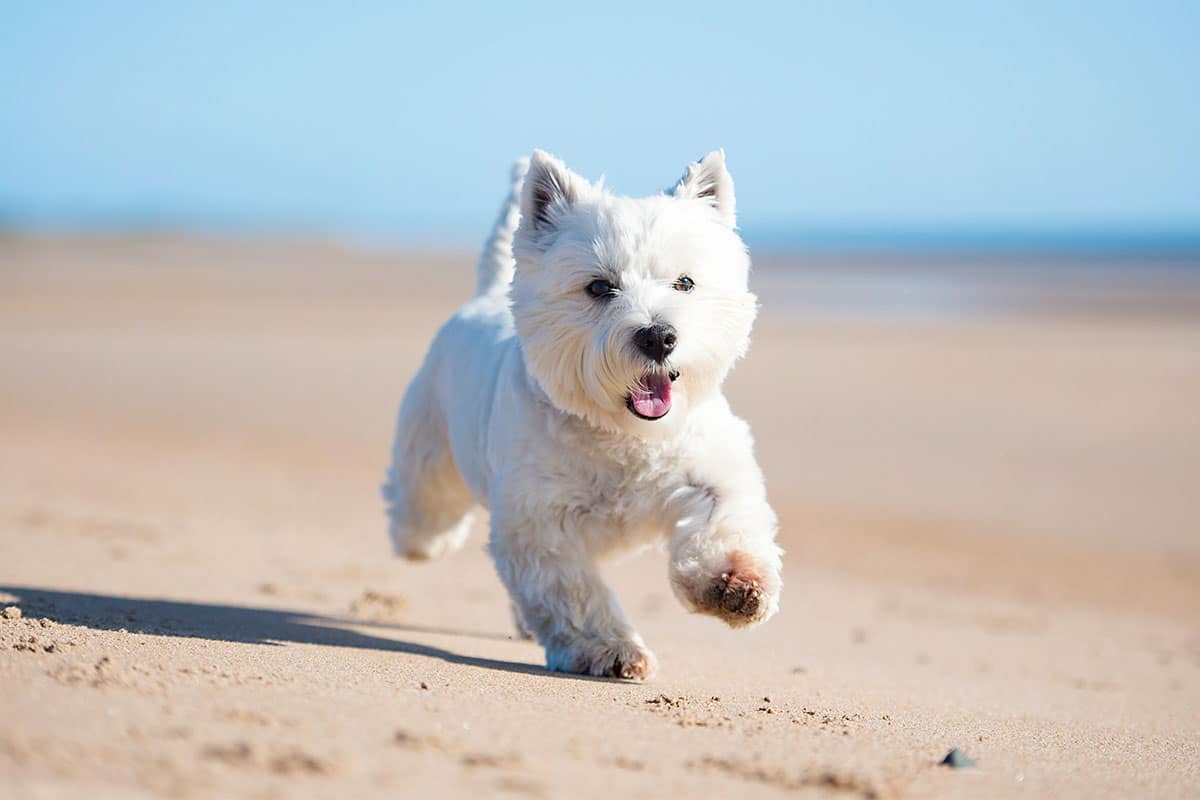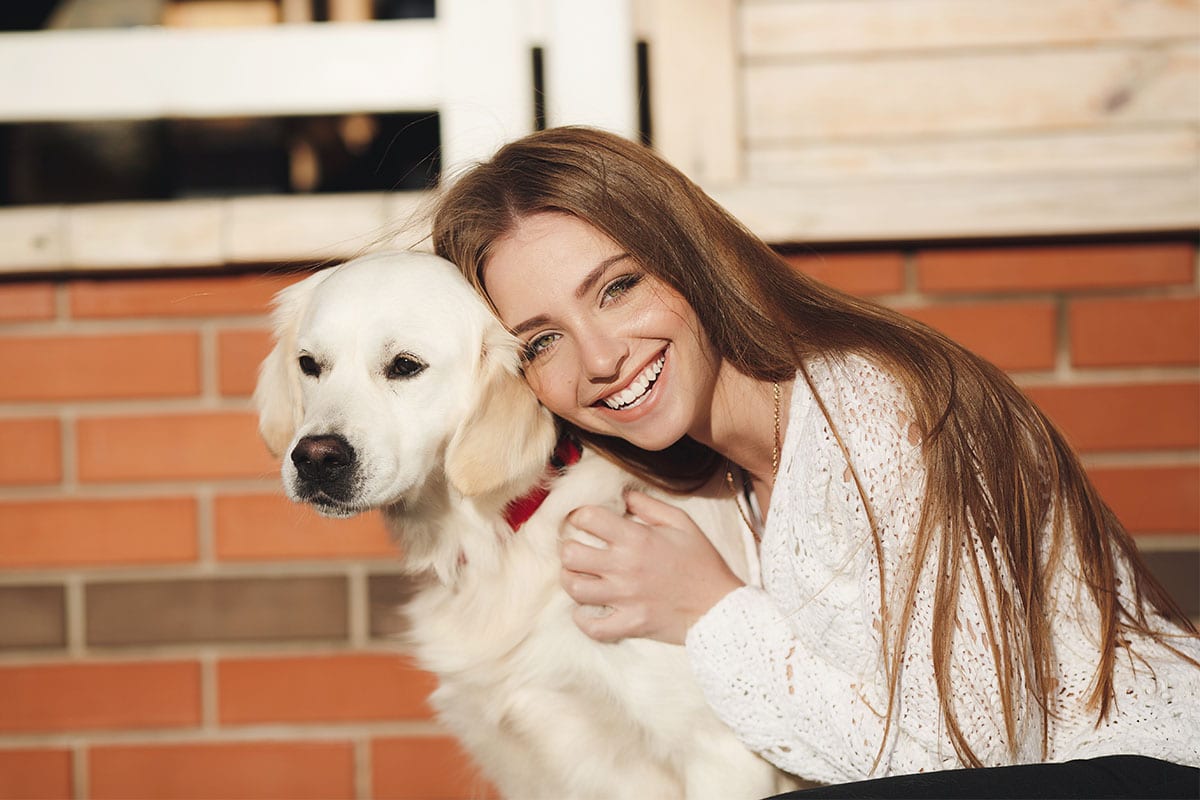Have you noticed your pup acting a little weird all of a sudden? Maybe they have become clingy, restless, or even snappy for no clear reason, so naturally, you start wondering if something’s wrong. There might be. But chances are, it’s just hormones. In fact, hormones play a big role in the way dogs react, socialize, and respond to the world around them. Thus, even small fluctuations in their levels can lead to behaviors that feel completely out of character. Wondering just how hormonal changes affect your dog’s behavior? Learn all about the most common hormonal triggers behind behavior changes and get a few tips to help your pup feel better along the way.
What Are The Hormonal Changes In Dogs?
Hormonal changes in dogs refer to changes in the production or balance of hormones that regulate the main functions in the body: metabolism, reproduction, stress response, and mood. These hormones are chemical messengers, and even slight imbalances can cause noticeable behavioral changes.
The most influential hormones when it comes to behavior are:
- Testosterone: linked to dominance, marking, roaming, and increased activity in males.
- Estrogen and progesterone: involved in mood, maternal behavior, and anxiety in females.
- Cortisol – the stress hormone that can spike during illness, fear, or major life changes.
- Thyroid hormones: responsible for regulating energy levels and, in some cases, mood.
 Playful behavior can sometimes look intense, especially during hormonal shifts that heighten energy or reactivity.
Playful behavior can sometimes look intense, especially during hormonal shifts that heighten energy or reactivity.How Hormonal Changes Affect Your Dog’s Behavior At Different Life Stages
Reproductive hormones such as testosterone or estrogen kick in as your dogs grow. These two hormones are the cause of common behavioral changes. These may include your dog becoming more territorial, marking around the house, humping, or showing new interest in other dogs. Some dogs can also become more independent or test boundaries they previously respected.
Spaying and Neutering
Spaying (for females) and neutering or castration (for males) cause a permanent drop in reproductive hormone levels. This, in turn, can have a positive impact on your dog’s health and behavior. For instance, following the procedure, it’s likely your pup will become calmer and easier to manage.
Therefore, the importance of spaying and castration lies in the positive effects on their behavior and physical benefits. These include a significantly lower risk of certain cancers, such as testicular cancer in males and mammary tumors in females, as well as the prevention of life-threatening infections like pyometra. Neutering can also reduce the chances of prostate problems in male dogs and eliminate complications related to pregnancy and birthing in females.
Heat Cycles In Female Dogs
After dogs reach sexual maturity between 6 and 9 months, there are some changes you can expect. For instance, unspayed females go through heat (estrus) about every six months. During this period, they usually experience fluctuations in estrogen and progesterone.
This can lead to:
- Moodiness
- Restlessness
- Vocalizing
- Excessive licking
It’s also not unheard of for female dogs to actively seek out males or even attempt to escape.
Pregnancy and False Pregnancy
Pregnancy causes noticeable changes in behavior, such as nesting, increased affection, or even aggression.
Interestingly, some unspayed females can also go through false pregnancies where they exhibit similar symptoms: carrying toys like puppies, guarding, or producing milk. These reactions are typically driven by sharp hormonal changes after the heat cycle.
Senior Years and Hormonal Decline
As dogs age, their hormone levels gradually decline. This can lead to reduced energy, disorientation, anxiety, or changes in social behavior. Some senior dogs can also experience symptoms tied to canine cognitive dysfunction, which mimics dementia in humans.
The Most Common Behavioral Changes to Watch for
Hormonal changes affect every dog differently, although certain patterns and behaviors tend to show up more often:
- Increased aggression or irritability, especially around other animals or during feeding and playtime.
- Clinginess and/or separation anxiety
- Restlessness and pacing
- Marking and mounting, which is most common in unneutered males and is driven by rising testosterone and territorial instincts
- Withdrawal and/or lack of energy
These behaviors aren’t always a reason for concern. Still, they are worth your attention.
 Are you wondering how hormonal changes affect your dog’s behavior? As dogs age, they may sleep more or appear withdrawn. This is a consequence of their hormone levels dropping.
Are you wondering how hormonal changes affect your dog’s behavior? As dogs age, they may sleep more or appear withdrawn. This is a consequence of their hormone levels dropping.Is Your Dog Going Through Hormonal Changes? Here’s How You Can Help
If you wish to prevent disruptions in your dog’s daily life and provide them with the right kind of support, you should:
- Your pet should have a day-to-day routine. Feeding times, walks, and play sessions with your dog can help them feel grounded.
- You mustn’t overstimulate them with loud noises. Additionally, you should make sure they are prepared for any new environments or changes in their surroundings. You should give them as much time and space as possible to rest and process the change.
- Provide proper training – Your pet could demonstrate rebellious or impulsive behavior at a certain point. Make sure to reinforce positive habits with consistent training sessions.
When to Seek Professional Help
Most hormonal shifts are temporary, and with a little patience, your dog will return to their usual self. However, not all behavior changes should be brushed off. If something feels off for too long, don’t ignore the issue.
Pay close attention if:
- The new behavior is aggressive, destructive, or obsessive
- Your dog seems distressed or scared
- Their appetite, sleep, or energy levels change drastically
- Nothing you do seems to help, despite structure, training, or comfort
What if it’s More Than Hormonal Changes
Hormonal changes affect your dog’s behavior, but there could potentially be different reasons behind you’re dog’s moodiness or anxiety. Sometimes, what seems like a hormonal issue may actually be linked to pain, illness, or other health concerns. If you’re unsure, it’s a good idea to consult a vet to make sure there’s nothing more serious going on.



















 English (US) ·
English (US) ·